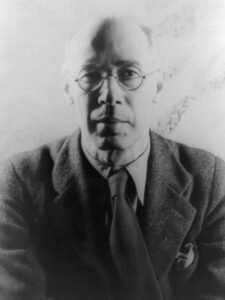Books By Henry Miller
- Tropic of Cancer (1934)
- Black Spring (1936)
- Tropic of Capricorn (1939)
- The Cosmological Eye (1939)
- The Colossus of Maroussi (1941)
- Sunday After the War (1944)
- The Air-Conditioned Nightmare (1945)
- Plexus (1948)
- The Rosy Crucifixion: Sexus (1949)
- The Rosy Crucifixion: Plexus (1953)
- The Rosy Crucifixion: Nexus (1959)
- The Smile at the Foot of the Ladder (1959)
- Big Sur and the Oranges of Hieronymus Bosch (1957)
- Quiet Days in Clichy (1956)
- The Time of the Assassins: A Study of Rimbaud (1956)
- The Books in My Life (1952)
- Sexus (1965)
- Plexus (1965)
- Nexus (1965)
- My Life and Times (1971)
About Henry Miller
 Henry Miller, born on December 26, 1891, in New York City, was an American writer known for his bold and controversial works that challenged societal norms and conventions. He became a prominent figure in the literary world for his candid exploration of themes such as sexuality, relationships, and the human condition.
Henry Miller, born on December 26, 1891, in New York City, was an American writer known for his bold and controversial works that challenged societal norms and conventions. He became a prominent figure in the literary world for his candid exploration of themes such as sexuality, relationships, and the human condition.
Miller’s writing style was characterized by its raw honesty, vivid imagery, and stream-of-consciousness narrative. He often depicted the struggles and desires of his characters with a remarkable degree of authenticity, drawing inspiration from his own life experiences and observations.
One of Miller’s most famous works is “Tropic of Cancer,” published in 1934, which was initially banned in the United States for its explicit content but later celebrated for its literary merit. The novel, along with its sequel “Tropic of Capricorn” and other writings, earned Miller a reputation as a daring and innovative writer.
Throughout his career, Miller wrote prolifically across various genres, including novels, essays, travelogues, and memoirs. His works often provoked controversy and censorship but also garnered praise for their literary merit and philosophical insights.
Miller’s influence extended beyond literature, inspiring subsequent generations of writers and artists with his unapologetic exploration of human nature and society. He passed away on June 7, 1980, leaving behind a rich and enduring legacy as one of the most influential and provocative voices in 20th-century literature.

